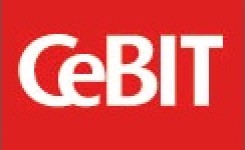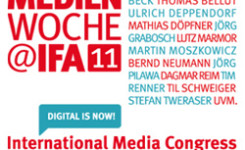Read more about the final prototype in the presse release. (in German only)
Fit bis ins hohe Alter dank Künstlicher Intelligenz – DFKI präsentiert finalen PAMAP-Demonstrator auf dem AAL Forum in Eindhoven
News
For their paper “Morphing billboards for accurate reproduction of shape and shading of articulated objects with an application to real-time hand tracking”, Nils Petersen and Didier Stricker have won the Best Paper Award at the Conference on Computational Modeling of Objects Presented in Images: Fundamentals, Methods and Applications – CompIMAGE 2012 in September in Rome, Italy. Read Paper
The upcoming issue of the Transactions on Pattern Analysis and Machine Intelligence (T-PAMI) will publish the article “Algorithms for 3D Shape Scanning with a Depth Camera”, by Yan Cui and Didier Stricker.
In cooperation with members from the University of Bristol, the University of Leeds, the Centre for Computer Graphics in Portugal, and the KTH in Sweden, DFKI will co-organise the IROS 2012 workshop “Cognitive Assistive Systems: Closing the Action-Perception Loop“. The workshop is organised as an activity for the European project COGNITO, to discuss the state-of-the-art methods in assistive systems, and as a platform to show the project’s outcomes.
We warmly invite you to participate and submit your ongoing work until July 13, 2012!

The Augmented Vision department will present their results towards Augmented Reality manuals at this year’s CeBIT taking place in Hannover from March 6th to 10th.
PB_AV_AR-Handbuch_20120301-EN.pdf1.37 MB
You can find our demonstrator at the DFKI booth F42, Hall 26 (CeBIT lab)
Studio is a standalone 3D visualizer and editor created in house based on Odysseus Framework.
On top of visualization and editing of your 3D models Studio allows for real time materials tweaking and provides open access to the rendering pipeline to the final user by using cgfx. It supports multiple render targets and it is possible to create a pipeline of scene effects.
To download Studio and to find out more about Studio please check http://av.dfki.de/odysseus-studio.
Latest impressive results of the project OrcaM have been presented to the interested public on Sunday, November 27th at the Museum Pfalzgalerie Kaiserslautern in the context of the event series Kunst(früh)stück. Due to the huge success and interest of the visitors, the head of the department Augmented Vision, Prof. Dr. Didier Stricker and Dr. Gerd Reis will present the method and results of digitization and 3D reconstuction of two objects d’art again on Sunday, December 04th.
Read also the german press release on the event.
In einem Interview mit rehacare.de spricht Prof. Dr. Didier Stricker über Pamap System.
Ganzen Artikel lesen auf www.rehacare.de (link not available anymore)

Dr. Frank Michel from the German Research Center for Artificial Intelligence (DFKI) gives a talk on the subject of “Continuous Natural User Interfaces: Interaction with New Media” at the “Internationale Funkausstellung” (IFA) in Berlin.
The presentation is being held Today, Tuesday, 6th of September 2011, between 14.00 and 15.30 under the slogan “Fresh Ideas, Future Technologies, Art and Design” in the context of the new “Digital Think Tank”, a panel, where experts from science, design and marketing presents their visions and products for tomorrow’s media landscape.
Frank Michel will sketch current tools and trends for interaction and interfaces, e.g. the interaction with natural intuitive gestures iPad. Furthermore he will characterize current research findings and methods and illustrate the visions of DFKI based on prototypical systems.”
